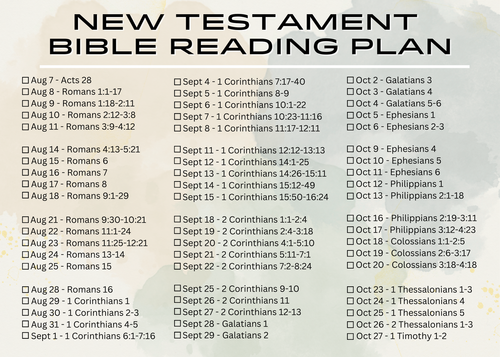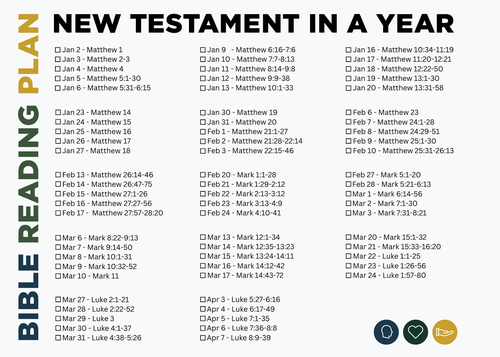Mistreated, Taken Before The Council, Pilate, Herod, And Delivered To Be Crucified
Cruelty
The guards responsible for Jesus in the temple mistreat him by mocking him, assaulting him, covering his eyes, and questioning him. It's evident from their behavior that they are aligned with the dark, misguided forces and have not embraced the truth.
At The Right Hand
Luke briefly describes the Jewish trial in five verses before Jesus is taken to Pilate as a criminal. The leaders from both political and religious backgrounds come together to discuss Jesus, mainly focusing on whether he has declared himself as the Messiah. Jesus responds by saying that even if he were to tell them the truth, they would not believe. He then asserts that he is the Son of Man who sits at the right hand of God and confirms that he is the Son of God, making his Christology very profound in this section. The council decides that Jesus has said enough and convicts him of guilt.
Pilate & Herod
The Jewish council brought charges against Jesus to Pilate, the Roman prefect, over Judea. The charges against Jesus include being a troublemaker in society, refusing to pay taxes, and claiming to be a king. When Pilate questions Jesus if these accusations are true, Jesus ironically replies that Pilate is saying this. Pilate believes Jesus is innocent and intends to release him. However, the religious leaders argue that Jesus is causing chaos throughout Judea and Galilee. When Pilate learned that Jesus was from Galilee, he sent him to Herod Antipas because Galilee was under Herod's jurisdiction. Herod was pleased and hoped to see Jesus perform a miracle. However, when Jesus was questioned, he did not respond to Herod, even though the religious leaders vehemently accused him. Herod and his soldiers disliked Jesus, mocked him, and sent him back to Pilate wearing fancy clothes. As a result, the hostility between Pilate and Herod ended on that day, and their friendship was restored.
No Guilt Deserving Death
After Jesus was sent back to Pilate, the latter summoned religious and political leaders and the people. Pilate informed them that their accusation that Jesus had misled the people was unfounded. The examination of Jesus suggested that he was innocent of all the charges against him. Even Herod reached the same conclusion and found nothing that warranted Jesus' death. Therefore, Pilate planned to release Jesus after punishing him. The narrative emphasizes Jesus' innocence, but the crowd wants him imprisoned and Barabbas released. Pilate resists because he wants Jesus to be freed, but the crowd keeps shouting for Jesus to be crucified. Pilate argues that there are no valid charges against Jesus. According to Luke, Pilate plans to release an innocent man, but the crowd insists on Jesus being put to death instead. Pilate gives in to their demand and releases Barabbas, granting the Jews a wish for evil. The trial is portrayed as a grave injustice.





Recent
Archive
2023
January
Happy New Year!He Will Save His People From Their SinsMy Beloved SonTemptation And MinistryThe SermonLeaving, Lying, Limits, Love, Largesse, and The Lord's PrayerTreasure, Anxiety, and JudgmentAstonishing AuthorityStorms, Demons, and HealingJesus Is CompassionateHis Eye Is On The SparrowSwords, Rewards, and MessengersThe Lord of the SabbathBlasphemy, Bad Trees, Signs, and FamilyStories, Sowers, and SoilsParables, Hidden Treasure, and RejectionFame, Food, Fear, Faith, and FringeReal Issues And The Power Of GodDying To Find LifeLike The SunChildren, Temptation, Sheep, And ForgivenessMarriage, Kids, And MoneyTo Serve And Give His Life
February
The ArrivalStories That StingQuestion TrapsHidden Motives And LamentThe End...?UnexpectedReady?Punishment, The Plot, And PerfumeTreachery, Passover, and The CupBetrayal, Injustice, And DenialThe Field Of Blood And The GovernorCrucifixion And DeathAll AuthorityMark—The Beginning Of The GospelHealing, Preaching, And The Forgiveness Of SinEating With Tax Collectors, Fasting, The Sabbath, And An Escape BoatThe Twelve, Blasphemy, Family, And A ParableParables And PowerA Different Kind Of StormPower Had Gone Out
March
Death, Hunger, And MiraclesCommandment Or TraditionDo You Not Yet Understand?The Christ And A Glimpse Of His GloryUnbelief, Confusion, And SinDivorce, Children, And PossessionsTo Give His Life As A RansomHosannaThe Rejected Stone, Taxes, And The Great CommandmentDestruction And The EndNo One Knows, An Anointing, And A Promise To BetrayPassover And GethsemaneThe Kiss, Arrest, And DenialPilate, Simon, And The CrucifixionDeath, Burial, Resurrection, And What\'s NextTheophilus And A Visit From GabrielMary And The MagnificatBenedictusThe Arrival And The ShepherdsSimeon, Anna, And The SpiritFruits Keeping With Repentance And BaptismThe Wilderness, Nazareth, And CapernaumSimon's Mother-In-Law, Fishing, A Leper, And Sins
April
Tax Collectors, Fasting, Sabbath Controversies, And The TwelveWhy Do You Call Me Lord, Lord?Jesus Marveled, A Raised Son, And QuestionsA Sinful Woman And A ParableObeying The Word, A Storm, And DemonsTwelve Years, Twelve Apostles, And SpeculationGreater, Costly, And GloryNot Getting It, The Cost, And AppointedWoes, Neighbors, And What Is NecessaryHelp Us Pray And A Divided Kingdom?Signs, Lights, And WoesHypocrisy, Fear, A Fool, And AnxietyParables, Division, And The TimesWarnings, A Daughter Of Abraham, And Jerusalem, JerusalemA Son Or An Ox, Parties, And DiscipleshipLost ThingsThe Dishonest Manager, The Law, And Anguish In This FlameMillstones And Mustard SeedsPersistent Prayer, Humility, A Childlike Faith, And The Rich RulerEverything That Is Written, A Blind Beggar, And A Wee Little Man
May
A Parable, A Colt, A Prophecy, And A CleansingAuthority, Wicked Tenants, And TaxesThings To Beware Of And WidowsDestruction, Persecution, The Son Of Man, And WatchingThe Plot, Betrayal, Lord's Supper, And Inappropriate BehaviorPrediction, Fulfillment, Agony, Betrayal, And DenialMistreated, Taken Before The Council, Pilate, Herod, And Delivered To Be CrucifiedCrucifixion, Death, And BurialHe Is Not HereDisbelieved For JoyIn The Beginning…The Lamb Of God And A WeddingZeal, What's Inside, And Born AgainHe Must Increase
Categories
no categories
Tags
no tags
